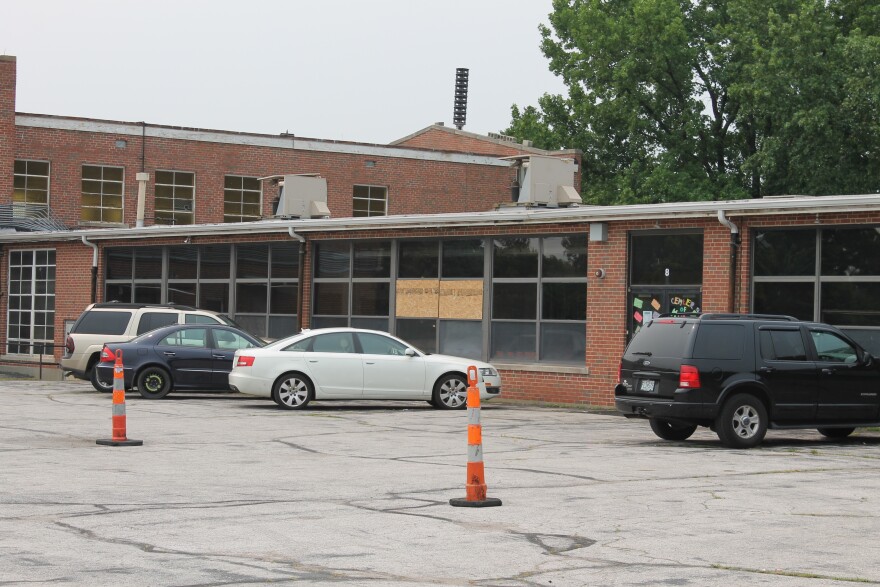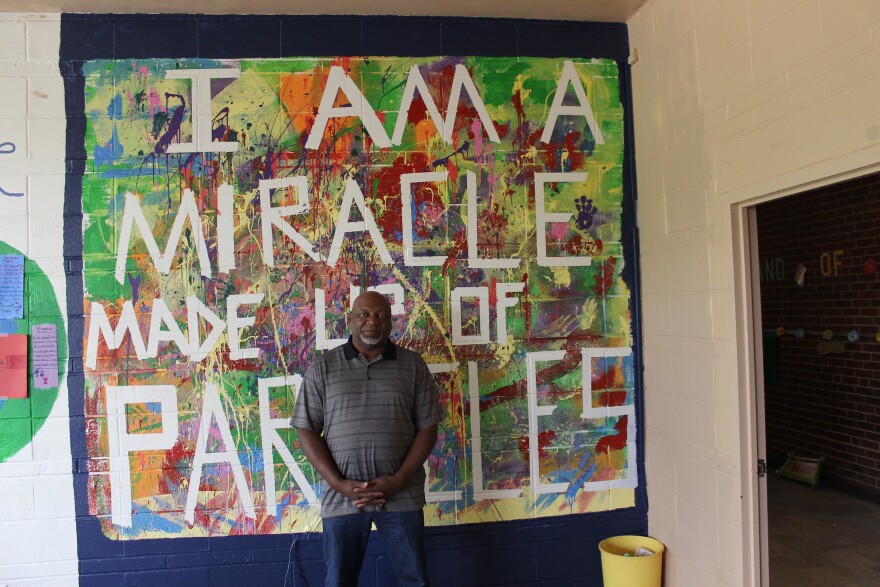On a balmy Tuesday afternoon, dozens of young children could feel the competitive spirit floating through the hallways of Greater St. Mark Family Church’s school.
Youngsters enrolled in the JSO Summer Learning Enrichment Program filed into a gymnasium to play a spirited game of kickball. It’s one of numerous activities offered at the camp, which caters mainly to low-income children from north St. Louis County.
But competitiveness wasn’t the only thing wafting through the building. Walk into certain classrooms, and the sticky, sweaty aura of heat is unmistakable.

“It’s warm in here. The students have to come in here for me to talk to,” said summer program administrator Willie E. Richardson, who was meeting with a young man holding a paper bag puppet while speaking to a reporter. “We bring in fans to try to cool it off. Sometimes that doesn’t help at all. You know? It blows out more warm air than cool air, but we have to put up with it.”
The school’s spotty air conditioning has nothing to do with poor planning or a desire to cut costs. Earlier in the spring, thieves stole about 15 air conditioning units off the roof. St. Louis County Police Department spokesman Brian Schellman says an investigation into the theft continues and nobody has been taken into custody.
St. Mark’s plight is not unusual in St. Louis County. Schellman says his department has received about 20 reports of stolen air conditioners since May 1. He said perpetrators often want the copper inside the devices, material that's often swapped for cash to purchase illegal drugs like heroin.
State Rep. Tommie Pierson – the senior pastor at the church – said he doesn't think heroin addicts, per se, were the culprits.
"I think heroin addicts would not have had the equipment to take [the] units and move them. They didn’t throw them off the buildings. There’s no print in the asphalt that they were dropped off. They had a lift and I think these were professionals," Pierson said. "Our school wasn’t the only building hit. There were other buildings around town and businesses that were hit. I don’t think it had anything to do with race. I think there were just copper thieves out there with the equipment, and they were able to hit several buildings."
Regardless of their motive, the thieves caused about $100,000 worth of damage. While an air conditioning company offered to install new devices for free, that will only cover about $50,000 worth of the cost.
Supporters are planning a 8 a.m. fundraiser on Thursday at Greater St. Mark Family Church to raise the rest of the funds for the air conditioners and other costs of the summer program. (Click here to see more information about the event.) Both Richardson and Pierson say keeping the kids cool is vital to keeping the program humming along.
"The summer camp is a learning institute for children over the summer. And some kids lose what they’ve learned over the school year over the summer, because they’re not involved in a reading program or math program," Pierson said. "And so, we want to try and help these kids to retain what they’ve learned during the course of the regular school year."
Richardson said the summer program gives children “a chance to be able to participate in different things that will help motivate them to the point where they will not be getting in trouble.” Besides kickball and educational brush-ups, the program offers art classes, karate lessons, field trips and even folk dancing sessions.
“And a lot of our kids get in trouble in the summertime, because they don’t have any place to go to,” Richardson said. “I found that this program, as long as I’ve been with it, it has really helped our children.”
Place in history
Greater St. Mark Family Church played a key supporting role in a wrenching year for the St. Louis region.

The church served as a public staging ground during the Ferguson unrest, including a shockingly raucous Gov. Jay Nixon press conference and the reveal of independent autopsy report of Michael Brown. When the cameras turned off, the church was a gathering place for a community fraught by concerns over race, policing and violence. It also offered sanctuary to people during the November grand jury decision.
Pierson, a Bellefontaine Neighbors Democrat and a recently minted candidate for lieutenant governor, said the church played a “vital role” that “we didn’t ask for.”
“I think we’ll go down in history of being a church that was open not just to the protesters,” Pierson said. “We didn’t turn anybody down. If you wanted to come here, you could come.”
Besides Nixon, Pierson said his church hosted some national figures – and some local ones such as Ferguson Mayor James Knowles III. The church also provided a literal cooling off place for protesters when the unrest was most acute last August.
“Most of the people who come here had been here enough to know that I wasn’t siding with anyone,” Pierson said. “I let people in here whether I subscribed to that ideology or not. If they wanted a platform, a place to come to meet or whatever, we did it.”
But while proud of the role his church played over the last year, Pierson said he’s less thrilled about the slow change in public policy after Michael Brown’s death.
He joined his African-American colleagues in the Missouri General Assembly in criticizing the GOP majority for not taking up “Ferguson-related” bills, such as legislation expanding body cameras and sensitivity training. He said that “there hasn’t been a lot of progress” over the past year, adding that change is “going to be slow, long-term.”
“I think the community is on notice,” Pierson said. “We’ve got to educate some people. People got to understand that we live in a democracy. And in a democracy, you elect who you want to represent you. But you have to participate. So if the majority had participated in Ferguson, you probably would not have had a Knowles as mayor. You probably wouldn’t have had a Jackson as chief of police. You probably wouldn’t have had a Darren Wilson walking the street if the community had exercised its right to vote – because they live in a democracy.”
“So that has to be taught,” he added. “And that’s not something you learn overnight.”
On the Trail, a weekly column, weaves together some of the intriguing threads from the world of Missouri politics.





